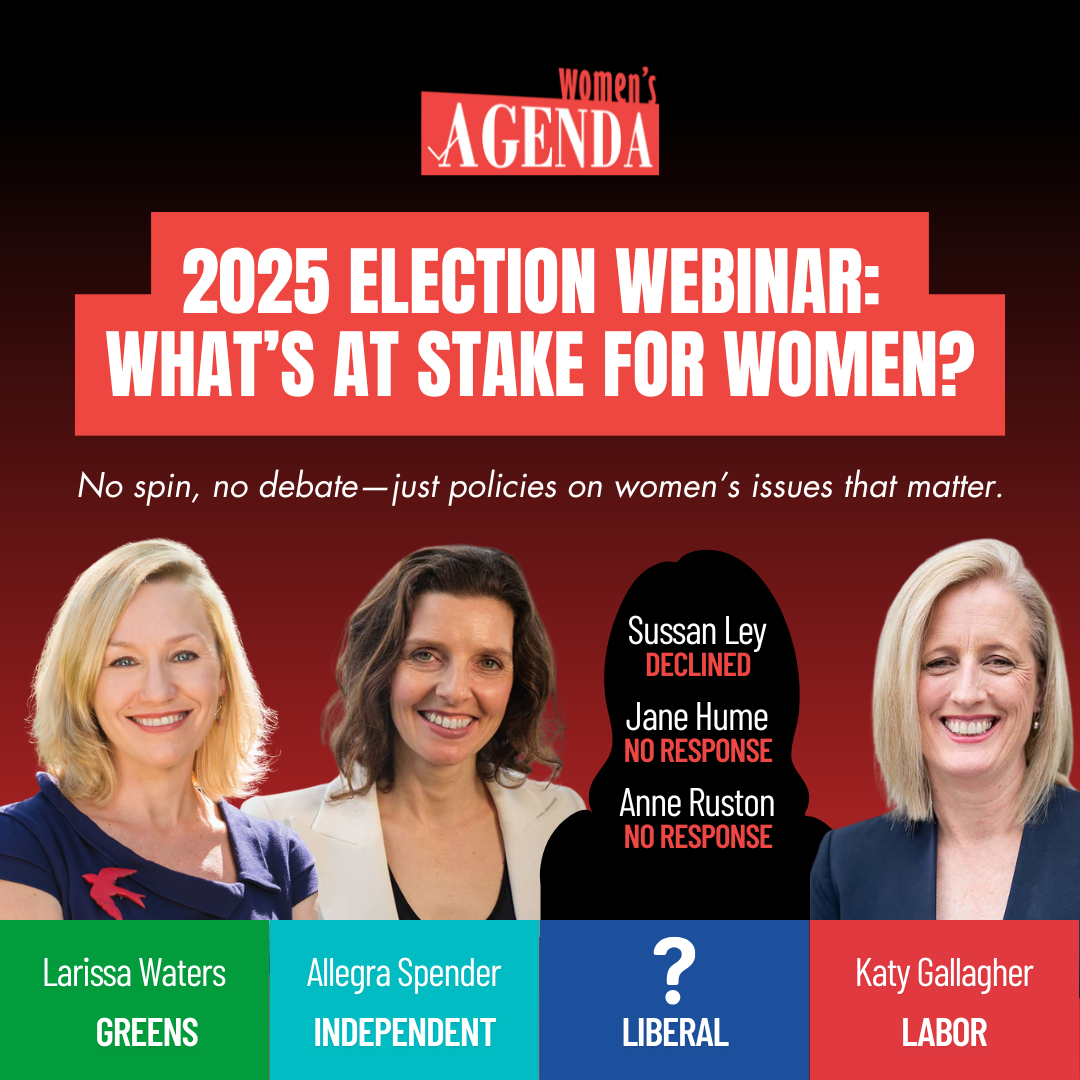Prime Minister Anthony Albanese and Opposition leader Peter Dutton debated each other at a Sky News leaders forum last night in front of 100 undecided voters. The issues of domestic and family violence, as well as violence against women, didn’t get a mention.
That’s despite Albanese declaring violence against women a “national crisis” less than a year ago, and Dutton suggesting a royal commission was needed to determine the solutions ahead.
Is it that women are no longer getting murdered? Sadly, no.
Is it that the rate of police calls to domestic and family violence are trending downwards? That’s not the case either.
But you wouldn’t know it by the lack of attention these issues are getting from politicians across the major parties. While there were no specific questions raised during the forum — with cost of living taking centre stage — neither leader took an opportunity to weave the issue into their responses.
There have been no new announcements from the major parties in this space during the election campaign. Treasurer Jim Chalmers’ Feaderal Budget failed to include any significant new funding, and the Coalition doesn’t appear to have any real ideas for addressing the issues beyond 2024’s vague suggestions of a royal commission, which would likely delay the urgent action required.
In NSW last year, almost half (45.9 per cent) of all homicides in 2024 were related to domestic and family violence, the majority of those killed being women, according to NSW Bureau of Crime Statistics and Research. This did not include male violence against women where the killer was unknown to the victims, such as the five women killed during the Bondi attack. Meanwhile, domestic and family violence assaults and sexual assaults are two of the few areas of “major crimes” where reported incidents are actually on the increase. In contrast, other areas such as robbery and malicious property damage are described as being “all much lower” than a decade ago.
Late last year, coroner Elisabeth Armitage described the Northern Territory as experiencing a “plague of DV” that should be considered “our national shame.”
Victorian crime data reports that police are being called to a family violence incident every six minutes in the state and arresting three perpetrators every hour. With family violence being the biggest concern for police, according to the data published in December 2024.
In Victoria, on the day before the election was called, police were called to a home in Werribee, where they found the body of Czarina Gatbonton Tumaliuan with extensive stab wounds. She was 42, a businesswoman who loved food and adventure. She was a mother of four, and married to the man police have charged with murdering her. She’s one of ten women killed by violence so far this year, according to Destroy The Joint’s Counting Dead Women. Czarina is pictured above.
So is it up to the states and territories to contend with lowering these shocking statistics in isolation? During national cabinet meetings of leaders last year, leaders agreed to do more together to help deliver on the national plan to end violence against women and children within a lifetime.
Yet, less than 12 months later, as the murders keep happening, the issue is hardly getting a mention.
One of the few candidates for the Federal Election who is speaking out is the independent community candidate for Goldstein, Zoe Daniel, who was also getting the issue of family violence heard in parliament well before the prime minister made his “national crisis” declaration. Last week, Daniel asked on her Facebook page, “Why is no one talking about violence against women in the lead up to the election, when women are being killed at rate of more than one a week?” And as many women are having to choose between living in poverty or violence? Daniel noted that the ambitions of the national plan to end violence against women and children will not happen without funding for the elements required, including prevention, education, law enforcement, housing and recovery support for victim-survivors.
In November, on International Day for the Elimination of Violence against Women, Peter Dutton declared his party would “recommit to the work needed to end it.” He described it as a “shared responsibility” requiring everyone to act so that women can live free from fear and harm. “Safety and dignity cannot and must not wait,” he said.
And yet, policy ideas for such safety are waiting. Must we wait for the cost-of-living crisis to ease? One that may never stop for many people, given that it ultimately reflects the reality of growing and persistent inequality? Are we waiting for attention to turn away from Trump? Or must we wait for another murder or murders to be considered “shocking enough” to capture national attention once again?
If you or someone you know is in immediate danger, call 000.
If you need help and advice call 1800Respect on 1800 737 732, Men’s Referral Service on 1300 766 491 or Lifeline on 13 11 14.
***************************
Support Women’s Agenda! We are 100% independent and women-owned. We’re covering the Federal Election from the perspective of what matters to women, just as we’re always keeping the issues that matter for women on the daily agenda. Foundation members are just $5 a month.
Bonus: you’ll receive our weekly editor’s wrap of the key stories to know each week!


